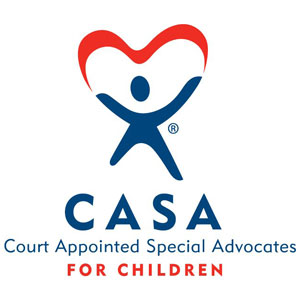April is National Child Abuse Prevention Month, and CASA of Middlesex County is raising awareness of the need for more dedicated members of the community to step up and become CASA volunteers, and support abused and neglected children and their families.
CASA volunteers, or Court Appointed Special Advocates, are everyday people from all walks of life who are recruited and specially trained to advocate for children in foster care and provide a consistent, reliable adult presence for them during a difficult time in their life.
Last fiscal year, CASA of Middlesex County served 157 children, which equates to 45% of the 352 children in Middlesex County who were in foster care during that time. This represents a 25% increase from the number of children served during the year prior.
“We still have work to do,” said Stephanie Brown, executive director, in a prepared statement from CASA of Middlesex County. “We need your help to ensure that no child has to navigate the foster care system alone.” In particular, CASA is in great need of more male and bilingual Spanish-speaking volunteers.
CASA volunteers are trained, committed community volunteers who advocate on behalf of abused and neglected children in Middlesex County.
CASA volunteers are assigned to one child or sibling group to advocate for their best interests in court, in school and at home. They get to know the child and everyone involved in their life, such as their parents and other family members, foster parents, therapists, caseworkers and teachers, in order to develop a realistic picture of the child’s unique situation, according to the statement. They engage those important to the child and family in order to build a network of support around them, so that the family has access to support and resources after the case ends.
They make recommendations to the judge overseeing the child’s case, with the goal of ensuring that the child is safe and the family has the resources, support and healthy relationships needed to heal.
“CASA volunteers are a constant for the child in a time of chaos,” Brown said in the statement. “A child may have multiple social workers, attorneys, therapists and foster placements throughout the life of the case but we make every effort to ensure they have only one CASA volunteer, which can make all the difference for the child’s future.”
Recently, just two days after a 7-year-old child moved to a new foster placement, in a new town, with a new school, the CASA volunteer visited and the child ran to the volunteer shouting ‘you found me’ with excitement over seeing a familiar, caring face, according to the statement.
Throughout April, in honor of Child Abuse Prevention Month, CASA of Middlesex County is calling on members of the community to help our program serve more of Middlesex County’s most vulnerable children. A child in foster care may have faced physical, psychological and/or emotional trauma only to endure long periods of uncertainty in the system as they wait to go home or be adopted, according to the statement.
All this chaos and inconsistency has long-term effects. But having a caring, consistent adult who listens, checks in and puts the child’s best interests first can change this story, according to the statement.
Children with a CASA on average receive more services while in care, do better in school, spend less time in foster care, are more likely to be adopted, and are less likely to be bounced from home to home, according to the statement.
To become a volunteer or make a donation, visit casaofmiddlesexcounty.org, call 732-246-4449, or email [email protected].

